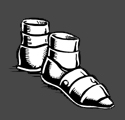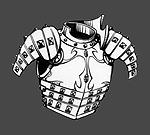Microsoft Zone Archive/Asheron's Call Handbook/The Way of Magic: Of Components and Items
Related topics: Magic, Spell Components
Original Link (now dead) - http://classic.zone.msn.com/asheronscall/tips/ashetipswayofmagic2.asp
The Way of Magic: Of Components and Items
A Neophyte's Primer on the Arcane Arts, by Kimizu Jii-wen of Hebian-to
Components

Next to Mana, magic components are the most vital elements in spellcasting. They take many different forms, and each has its own importance in spell formulae. For the sake of protecting the secrets of specific spells, and thus preserving their potency, I will not divulge the precise meanings of individual components, but I will outline the roles different types of components play in making spells work.
Scarabs are the keystone of spell formulae, invoking the power the wizard wishes to harness. Depending on the scarab in its formula, a fire spell can summon anything from a minor flame to a vast conflagration. Example components: Lead Scarab, Iron Scarab, Copper Scarab.
Herbs take the power unleashed by the scarab and channel it, giving it a purpose. Each sort of herb funnels power in a different manner. Example components: Amaranth, Hawthorn, Vervain.
Powdered Gemstones provide substance to a spell, beginning the shaping of the channeled energy. Different gemstones alter the energy in different ways. Example components: Powdered Bloodstone, Powdered Malachite, Powdered Turquoise.
Alchemical Substances complete the energy shaping begun by the gemstone component, giving the spell structure. Naturally, each substance provides a different shape. Example components: Cobalt, Quicksilver, Vitriol.
Talismans provide an outlet for the summoned energy, letting it work upon the spell's intended target. Each talisman is made of a different sort of wood, each of which directs the magic in a unique way. Example components: Cedar Talisman, Ebony Talisman, Oak Talisman.
Tapers have a subtler relationship to spell formulae than do the other components. They temper and embellish the magic's energy as it takes form. The more powerful the spell, the more of these adjustments are needed. Tapers differ by color -- red, green, white, and so forth -- but while there are patterns to how tapers affect magic, the meanings of the colors vary from spell to spell and sometimes from one spellcaster to the next.
Spell Component Buyer
On the screen listing a player's spell components, alongside the current number of components the player has, a red number now denotes the amount of that component the player wishes to purchase. This number can be set from 0 to 999.
To utilize their component buyer, players simply need to begin a transaction with an appropriate vendor and use any of the following @fillcomps commands:
- @fillcomps -- fills the buy list with all of the components that are desired.
- @fillcomps <component type> -- fills the buy list with all of the components of the given type.
- @fillcomps <pyreal value> -- fills the buy list with all of the components until the total price of the components exceeds the given value.
- @fillcomps <component type> <pyreal value> -- fills the buy list with all of the components of the given type until the total price of components exceeds the given value.
Further information on component buyer can be found in the article, "Details of Component Buying."
Magic Items

Magic is not solely the province of those who have studied the art, of course. There are many enchanted items in Dereth, from simple gems and elixirs to the mightiest weapon and staffs of ancient lore. The secrets of bestowing permanent enchantments upon common objects have yet to be revealed; perhaps, one day, some archmage will discover the spells for creating artifacts of his own. Until then, however, we must rely on what relics the Empyrean left behind when they quit this world.
Potions are life-giving tinctures. Anyone, regardless of their knowledge of arcane lore, can use them. Imbibing a potion replenishes the drinker's energy in one of three ways: red potions heal wounds, yellow potions relive fatigue, and blue potions -- coveted above all others by spellcasters -- help regain lost Mana. Of course, once consumed, a potion is destroyed forever.
Gems are among the simplest magic items, and can be used by even the most ignorant sword-swinger. The Empyrean imbued many simple crystals and stones with enchantments of various types. Some improve the user's raw abilities, making him stronger, faster, more focused, and so forth. Others increase the rate at which the user heals, recovers form exhaustion, or replenishes Mana, and still others protect the user from damage. Gems have only enough energy to be used once, after which they are destroyed by the magic forces they release.
Scrolls are prized by mages, as each contains the formula for a spell, allowing the reader to add that spell to his or her repertoire without having to research it. Once the reader learns the spell, however, the scroll is destroyed.

Jewelry and Clothing are endowed with spells that affect whomever wears them, until they are removed or their Mana runs out.

In most cases, a degree of Arcane Lore is necessary to make use of the item's magic. In addition, many of these items will only work for nobles of certain rank, and some clothing will only work for those from a specific heritage group. Certain kinds of jewelry or clothing often have spells that suit their function -- a crown might make its wearer a more effective leader, for instance, or a pair of magical boots might help the wearer run faster.

Armor and Shields are similar to magical clothing in many ways, but their spells tend to relate more to combat -- increasing strength, improving swordsmanship or defensive skills, and so forth. In addition, magical armor and shields also cast enchantments on themselves to improve their own abilities, making them studier or more protective against certain forms of damage, such as fire and lightening.

Weapons also work like clothing and armor, but their spells take effect while they wielded. As they are meant to be used by warriors, many weapons require little knowledge of Arcane Lore. Instead, however, a warrior must have a certain degree of expertise in their use. Their spells tend to affect the wielder's raw combat attributes (Strength, Coordination, and so forth), and they also cast enchantments on themselves to land deadlier blows, attack more quickly, or parry more effectively. Some magic weapons also spout flame, frost, lightening, or acid.
Orbs are used to cast spells on others. These spells tend to be helpful, improving the recipient's base attributes, healing damage, or helping them recover from injury or fatigue more quickly. Many orbs can be used only by those of noble rank, often to aid their followers.

Wands, Scepters, and Staffs also cast spells on others, but their magic is harmful instead of beneficial. When waved, they launch magical projectiles at their targets -- gouts of flame, bolts of lightening, spinning magical blades, and other dangerous missiles. Wands tend to be less powerful than scepters, but they can use their spells more times before running out of Mana; similarly, scepters are less powerful, but can cast more often than staffs. In addition, scepters -- as a symbol of royalty -- almost always require the user to be of noble rank to wield their magic.
